The Intersection of Language and Identity in Bilingual Learners
1 March 2025
Language is more than just a way to communicate—it’s a fundamental part of who we are. For bilingual learners, language is not only a tool for expressing thoughts but also a core element of their identity. But how exactly do language and identity intersect in bilingual learners? What roles do language play in shaping how they see themselves and how others see them? Let’s dive into the fascinating world of bilingualism and discover how it shapes, molds, and influences the identity of those who speak more than one language.
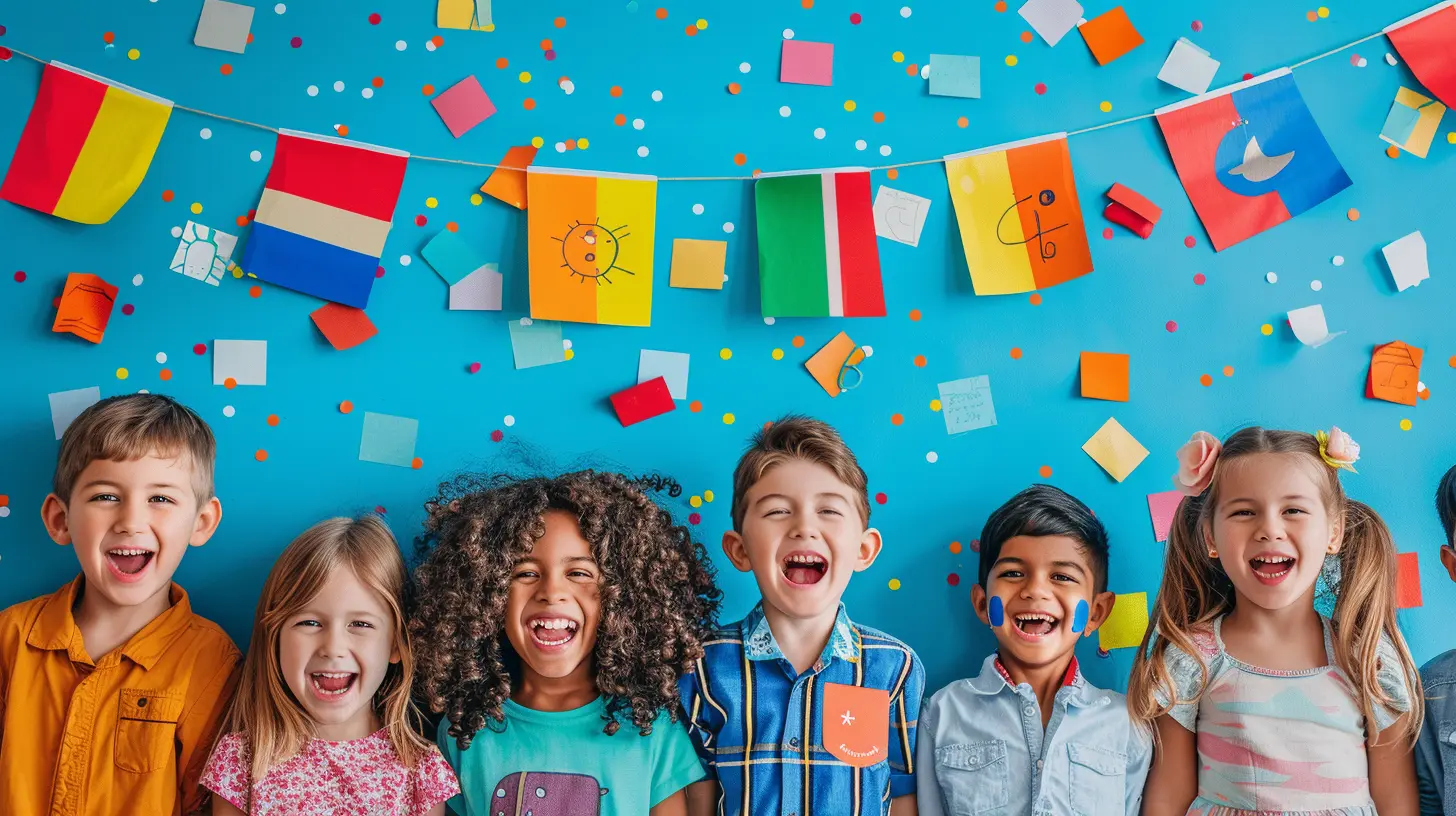
What is Bilingualism?
Before we dive into the topic of identity, let’s make sure we’re on the same page about what bilingualism actually is. Simply put, bilingualism is the ability to use two languages fluently. Some people are raised in an environment where two languages are spoken at home, while others may acquire a second language through education or life experiences.But it’s not all black and white. Bilingualism can exist on a spectrum. Some bilinguals may be equally proficient in both languages, while others might be stronger in one language than the other. There are also terms for different types of bilingualism, such as "simultaneous bilingualism" (learning two languages from birth) and "sequential bilingualism" (learning one language after another).
Now, here’s the kicker: bilingualism isn’t just about switching between languages like flipping a light switch. It’s intricately woven into how people think, feel, and, yes, even how they see themselves.
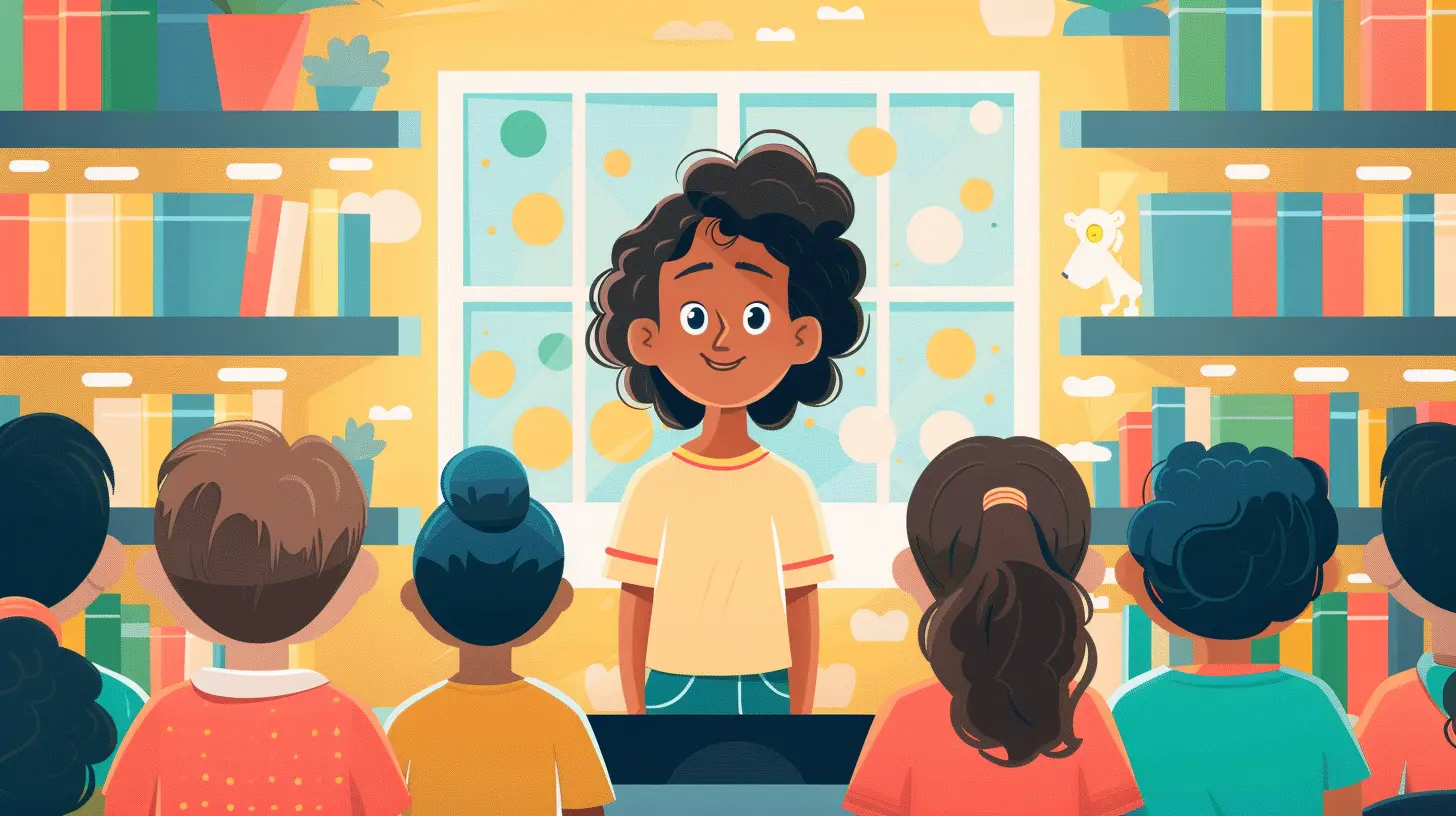
The Role of Language in Identity Formation
So, what does language have to do with identity? Think of language as a mirror. It reflects not only the words we speak but also our culture, values, and even how we relate to the world. When a bilingual learner switches between languages, they’re not just changing words—they’re tapping into different parts of their identity.Let’s break it down:
1. Cultural Connection
Language is often tightly linked to culture. For many bilingual learners, speaking their native language is a way of staying connected to their cultural roots. It’s more than just words; it’s about traditions, stories, values, and customs. Imagine someone who speaks Spanish at home but English at school. Each language represents a different part of their life. When they speak Spanish, they might feel connected to their family, heritage, and cultural practices. On the other hand, speaking English might represent their life in school, friends, and the broader society.2. Social Identity
Ever notice how we speak differently around different groups of people? Maybe you use more formal language at work and a more casual tone with friends. Bilingual learners often navigate this on an even deeper level. Depending on the context, they may choose to speak one language over the other to fit in, express solidarity, or even distance themselves. This language choice can affect how they are perceived by others and how they perceive themselves.For example, a bilingual speaker might switch to their second language in a group setting to fit in with the majority. This act can lead to an internal conflict about identity—trying to balance between being part of one group while staying true to another. Over time, this back-and-forth can shape how bilingual learners see themselves. Are they part of their native culture? The culture where they live now? Or a mix of both?
3. Personal Identity
Language isn’t just about how others see us; it’s also about how we see ourselves. For bilingual learners, different languages can evoke different emotions, memories, and even aspects of their personality. Some people report feeling more "themselves" in one language than another. Why? Because language is tied to our experiences.Imagine a bilingual child who speaks one language at home and another at school. The language they use at home might be associated with comfort, love, and family, while the language they use at school could be linked to learning, achievement, and growth. These different associations can influence how they view themselves in different environments.
4. Cognitive Flexibility and Identity
Bilingual learners often have a unique advantage when it comes to cognitive flexibility. Switching between languages requires mental agility, and this flexibility can extend beyond just language proficiency. It can shape how individuals think about themselves and their place in the world.For example, bilinguals tend to be more aware of cultural differences and can navigate multiple cultural contexts more easily. They are often more empathetic and open to different perspectives. This ability to shift between languages and cultures can result in a more fluid, adaptable sense of self. Instead of having a fixed identity, bilingual learners might see themselves as having multiple identities that can be navigated depending on the situation.
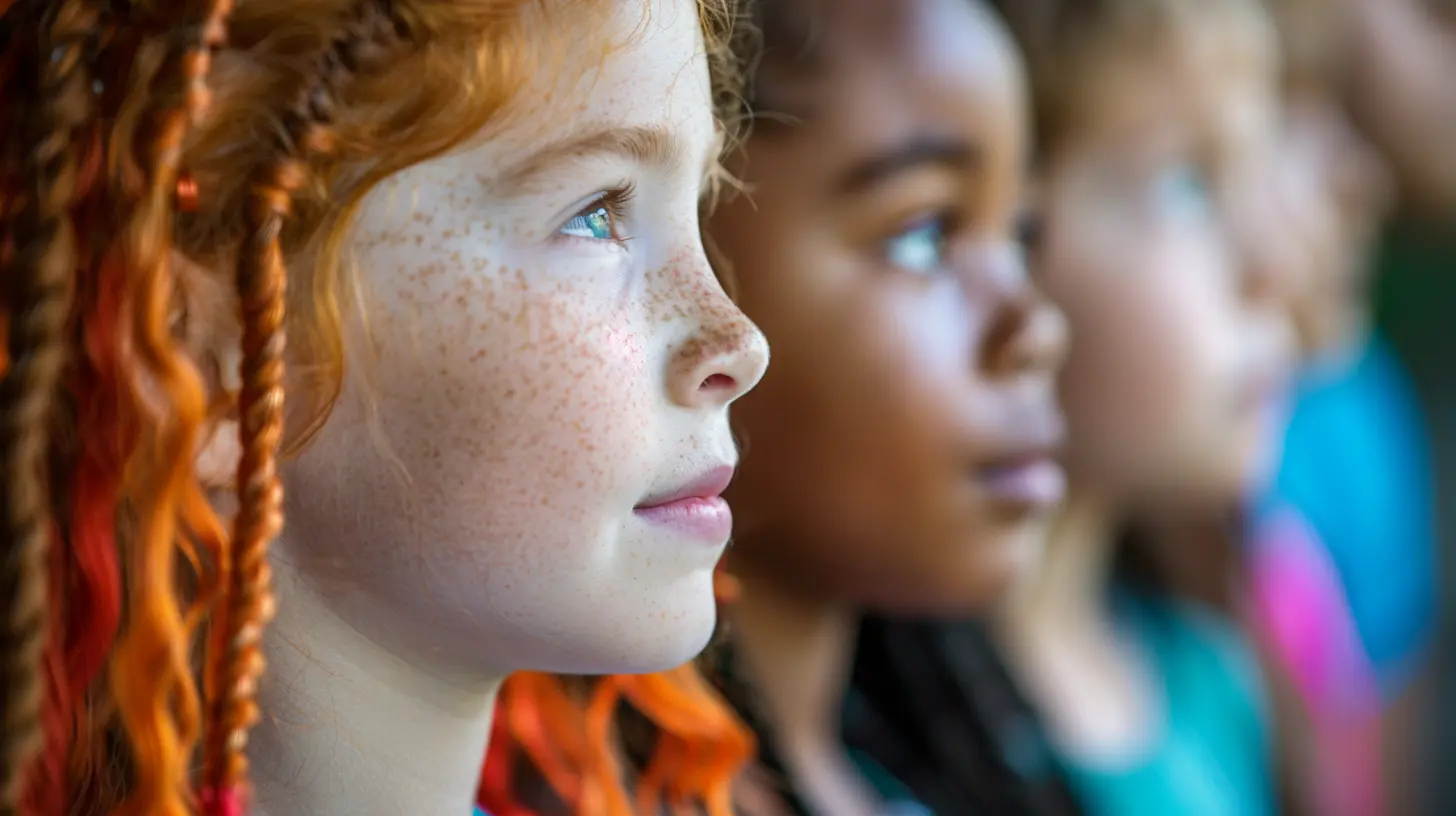
The Challenges Bilingual Learners Face
While being bilingual has many benefits, it’s not without its challenges—especially when it comes to identity. Many bilingual learners experience pressure from society to align with one culture or language over another. This pressure can create an internal conflict called "bicultural tension."1. Language Dominance and Inferiority Complex
One common challenge is the dominance of one language over another. In many countries, there is a dominant language that is seen as more prestigious or valuable, while minority languages may be viewed as less important. As a result, bilingual learners might feel that their native language is inferior, leading to feelings of shame or embarrassment when speaking it.This can result in a phenomenon known as "language shift," where learners begin to favor the dominant language and slowly lose proficiency in their native language. Over time, this can erode their connection to their cultural identity, leading to feelings of loss or fragmentation.
2. Code-Switching and Identity Confusion
Another challenge is code-switching—the act of switching between languages within a conversation. While code-switching is a normal and natural part of being bilingual, it can sometimes cause confusion about identity. Some bilingual learners may feel like they are constantly switching between different versions of themselves, depending on the language they are speaking.For example, a bilingual person might feel more confident and assertive when speaking one language, but more reserved or shy when speaking another. This can create an internal struggle about which "version" of themselves is the "real" one.
3. Stereotypes and Discrimination
Unfortunately, bilingual learners often face stereotypes and discrimination based on their language use. In some societies, people who speak with an accent or mix languages may be viewed as less intelligent or less capable. These negative stereotypes can have a significant impact on a bilingual learner’s self-esteem and sense of identity.4. Pressure to Assimilate
In many cases, bilingual learners may feel pressure to assimilate into the dominant culture and language. This pressure can come from peers, teachers, or even family members. While some learners may embrace this assimilation, others may feel like they are being forced to abandon a key part of their identity.
The Benefits of Embracing Bilingual Identity
Despite these challenges, there are also tremendous benefits to embracing a bilingual identity. Accepting and celebrating one’s bilingualism can lead to a richer, more complex sense of self. Here are some of the benefits:1. Increased Cognitive Abilities
Studies have shown that bilingual learners often have enhanced cognitive abilities, such as improved problem-solving skills, creativity, and multitasking. This cognitive flexibility can extend to how they view themselves and the world around them. Bilinguals are often better able to see things from multiple perspectives, which can lead to a more nuanced understanding of their own identity.2. Cultural Appreciation
Being bilingual allows learners to access and appreciate multiple cultures. This can lead to a deeper understanding of their own cultural heritage, as well as a greater appreciation for the diversity of the world around them. By embracing both (or multiple) languages and cultures, bilingual learners can develop a more holistic sense of self.3. Stronger Connections
Bilingual learners often have stronger connections with family members, friends, and communities that share their language. These connections can provide a sense of belonging and support, which is crucial for building a strong, positive identity.4. Career Advantages
On a practical level, being bilingual is a highly valuable skill in today’s globalized world. Bilingual learners often have more career opportunities and are able to connect with a wider range of people. This can lead to a greater sense of achievement and confidence in their abilities.Conclusion: Language as a Bridge to Identity
At the end of the day, language is more than just words—it’s a bridge that connects us to our culture, our community, and ourselves. For bilingual learners, navigating the intersection of language and identity can be both rewarding and challenging. But by embracing their bilingualism and celebrating the unique aspects of their identity, they can cultivate a deeper, more multifaceted sense of self.So, whether you’re a bilingual learner yourself or someone who knows one, remember this: language is not just a tool for communication; it’s a reflection of who we are. And for bilingual learners, that reflection is beautifully complex, layered, and ever-evolving.
all images in this post were generated using AI tools
Category:
Bilingual EducationAuthor:

Monica O`Neal
Discussion
rate this article
17 comments
Heath McAleer
This article insightfully explores how bilingualism shapes identity, highlighting the complex interplay between language, culture, and self-perception. Understanding these dynamics is crucial for educators to support the holistic development of bilingual learners.
March 29, 2025 at 7:54 PM

Monica O`Neal
Thank you for your thoughtful comment! I'm glad you found the exploration of bilingualism's impact on identity insightful. Understanding these dynamics is indeed key for fostering the growth of bilingual learners.
Ingrid Wilcox
This article beautifully highlights the profound link between language and identity for bilingual learners. Embracing multiple languages not only enriches communication but also deepens personal and cultural connections. Let's celebrate and support the unique identities shaped by this dynamic intersection!
March 22, 2025 at 8:35 PM

Monica O`Neal
Thank you for your thoughtful reflection! I completely agree that embracing multiple languages enhances both communication and cultural identity. Your support for bilingual learners is much appreciated!
Nora Lawson
Empower identities through language!
March 20, 2025 at 3:32 AM

Monica O`Neal
Absolutely! Language is a powerful tool for expressing and shaping our identities, especially for bilingual learners.
Myles McVicar
This article offers fascinating insights into how bilingual learners navigate their identities through language. I'm intrigued by the complexities of this intersection and eager to explore the impact on cultural belonging and self-expression!
March 17, 2025 at 9:47 PM

Monica O`Neal
Thank you for your thoughtful comment! I'm glad you found the insights fascinating—it's a rich area that truly highlights the dynamic relationship between language, identity, and cultural belonging.
Rayna McGivern
This article compellingly explores how bilingualism shapes identity, highlighting the nuanced relationship between language and self-perception. Understanding this intersection is crucial for educators to support diverse learners effectively and foster inclusive environments that celebrate linguistic diversity.
March 17, 2025 at 12:42 PM

Monica O`Neal
Thank you for your thoughtful comment! I'm glad the article resonated with you and sparked important discussions about the role of bilingualism in shaping identity and fostering inclusivity in education.
Tracie Roth
Exploring how bilingualism shapes identity is crucial for understanding diverse learners.
March 16, 2025 at 7:50 PM

Monica O`Neal
Thank you for your insightful comment! Bilingualism indeed plays a vital role in shaping identity, providing unique perspectives that enrich our understanding of diverse learners.
Pilar McCaw
This article beautifully explores how language shapes identity for bilingual learners! It’s inspiring to see the vibrant connections between language, culture, and personal growth. A must-read for educators!
March 15, 2025 at 12:53 PM

Monica O`Neal
Thank you for your kind words! I'm glad you found the connections between language, culture, and identity inspiring. Your support means a lot!
Skye Ruiz
This article beautifully captures the complexity of bilingualism! It's inspiring to see how language shapes identity and fosters connection. A must-read for anyone interested in the power of communication!
March 14, 2025 at 9:30 PM

Monica O`Neal
Thank you so much for your kind words! I'm glad you found the article inspiring and insightful. Language truly is a powerful tool for connection and identity.
Idris McCullough
This article brilliantly highlights how bilingualism enriches identity, allowing learners to navigate diverse cultural landscapes while fostering empathy and deeper connections.
March 14, 2025 at 12:03 PM

Monica O`Neal
Thank you for your kind words! I'm glad you found the article impactful in highlighting the enriching effects of bilingualism on identity and connection.
Lyra McDougal
What a fascinating read! Exploring how language shapes identity in bilingual learners really highlights the uniqueness of each individual’s experience. It’s a beautiful reminder of how our languages connect us to our culture and community. Thanks for sharing!
March 14, 2025 at 5:49 AM

Monica O`Neal
Thank you for your thoughtful comment! I'm glad you found the exploration of language and identity meaningful. It's such an important aspect of understanding our diverse experiences.
Carson McMahon
What a fantastic exploration of bilingualism! Embracing multiple languages not only enriches communication but also deepens our understanding of identity. Keep shining, bilingual learners—your unique voices add so much color to the world!
March 13, 2025 at 8:47 PM

Monica O`Neal
Thank you for your insightful comment! I’m glad you found the exploration meaningful—bilingualism truly enhances both communication and identity.
Issac McCullough
This article beautifully captures the complex relationship between language and identity in bilingual learners. It highlights how language shapes cultural connections and self-perception. Understanding this intersection is crucial for educators to foster an inclusive environment that celebrates diverse identities and enhances the learning experience for all students.
March 13, 2025 at 1:47 PM

Monica O`Neal
Thank you for your thoughtful comment! I'm glad you found the article's insights on language and identity valuable for fostering inclusivity in education.
Zayn Mitchell
This article insightfully explores how bilingual learners navigate their identities through language. By highlighting the complexities of language use, it emphasizes the importance of understanding these dynamics for effective teaching and fostering inclusivity in educational settings.
March 8, 2025 at 5:00 AM

Monica O`Neal
Thank you for your thoughtful comment! I'm glad you found the article valuable in highlighting the complexities of language and identity for bilingual learners.
Arwenia Gray
Ah, the fascinating dance of bilingualism! It's like having a VIP pass to two languages while navigating the identity maze. Just imagine: one moment you're debating the best taco place in Spanish, and the next, you’re arguing in English about why pineapple has no place on pizza. Multilingual life, folks!
March 5, 2025 at 11:18 AM

Monica O`Neal
Thanks for your insightful comment! Bilingualism truly enriches our identity and enhances our cultural experiences, allowing us to engage in vibrant discussions across languages.
Zephyra Newton
Language and identity: where your ‘hello’ might just be a ‘¡hola!’ in disguise!
March 5, 2025 at 5:37 AM

Monica O`Neal
Thank you for highlighting the nuanced connection between language and identity! It’s fascinating how a simple greeting can reflect deeper cultural ties.
Zia Baxter
Oh great, just what we needed—more proof that mastering two languages means doubling the identity crisis! Who knew bilingual learners would have to juggle words and self-discovery? How exhausting!
March 2, 2025 at 3:30 AM

Monica O`Neal
I appreciate your perspective! Bilingualism can indeed complicate identity, but it also enriches our understanding of self and culture. Balancing languages may be challenging, but it offers unique insights and connections.
Sylas Thornton
This article brilliantly highlights how bilingualism shapes identity. It's fascinating how language not only serves as a communication tool but also weaves the fabric of self-perception. Embracing bilingualism in education isn’t just about fluency; it's about nurturing the multifaceted identities of learners in an increasingly globalized world.
March 1, 2025 at 3:58 AM

Monica O`Neal
Thank you for your thoughtful comment! I completely agree—bilingualism truly enriches identity and plays a crucial role in shaping self-perception in our global society.
MORE POSTS

How to Support English Language Learners in Special Education
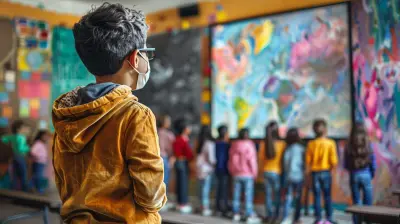
The Role of Policymakers in Supporting Arts Education
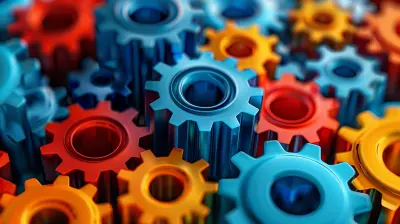
STEM for All: Creating Inclusive Learning Environments for Diverse Learners

How to Guide Students Through Difficult Texts Without Losing Engagement

How Continuing Education Can Help You Achieve Work-Life Balance
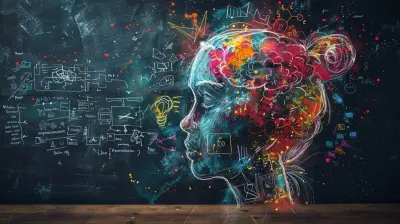
Why Metacognition is Key to Effective Problem Solving
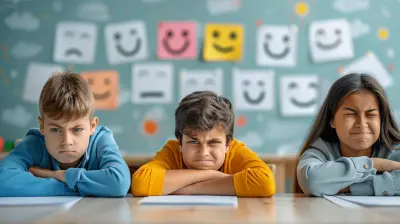
The Impact of Rubrics on Student Self-Efficacy and Confidence
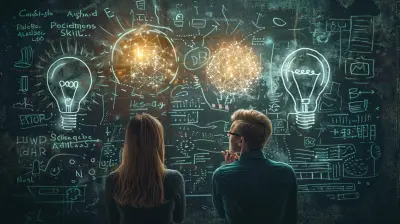
Using Case Studies to Improve Problem-Solving Skills
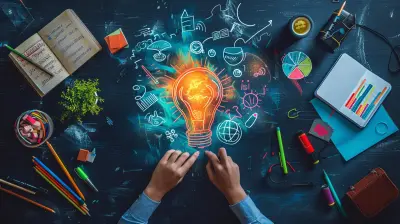
Empowering Students with Digital Tools for Creative Expression

Exploring Financial Aid Options for Continuing Education
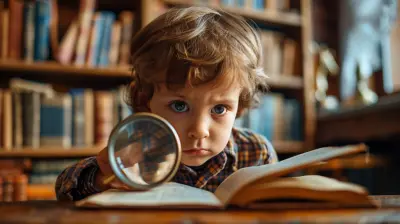
Effective Ways to Teach Inferring Skills